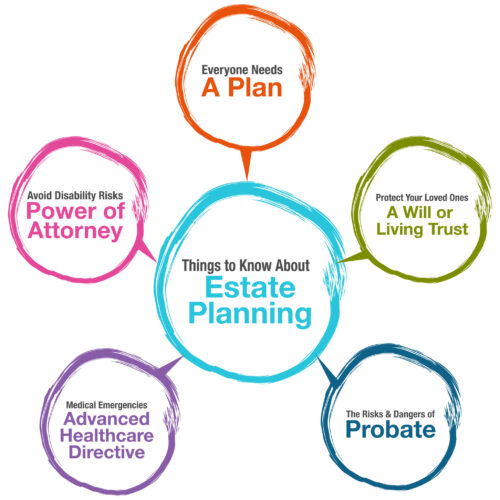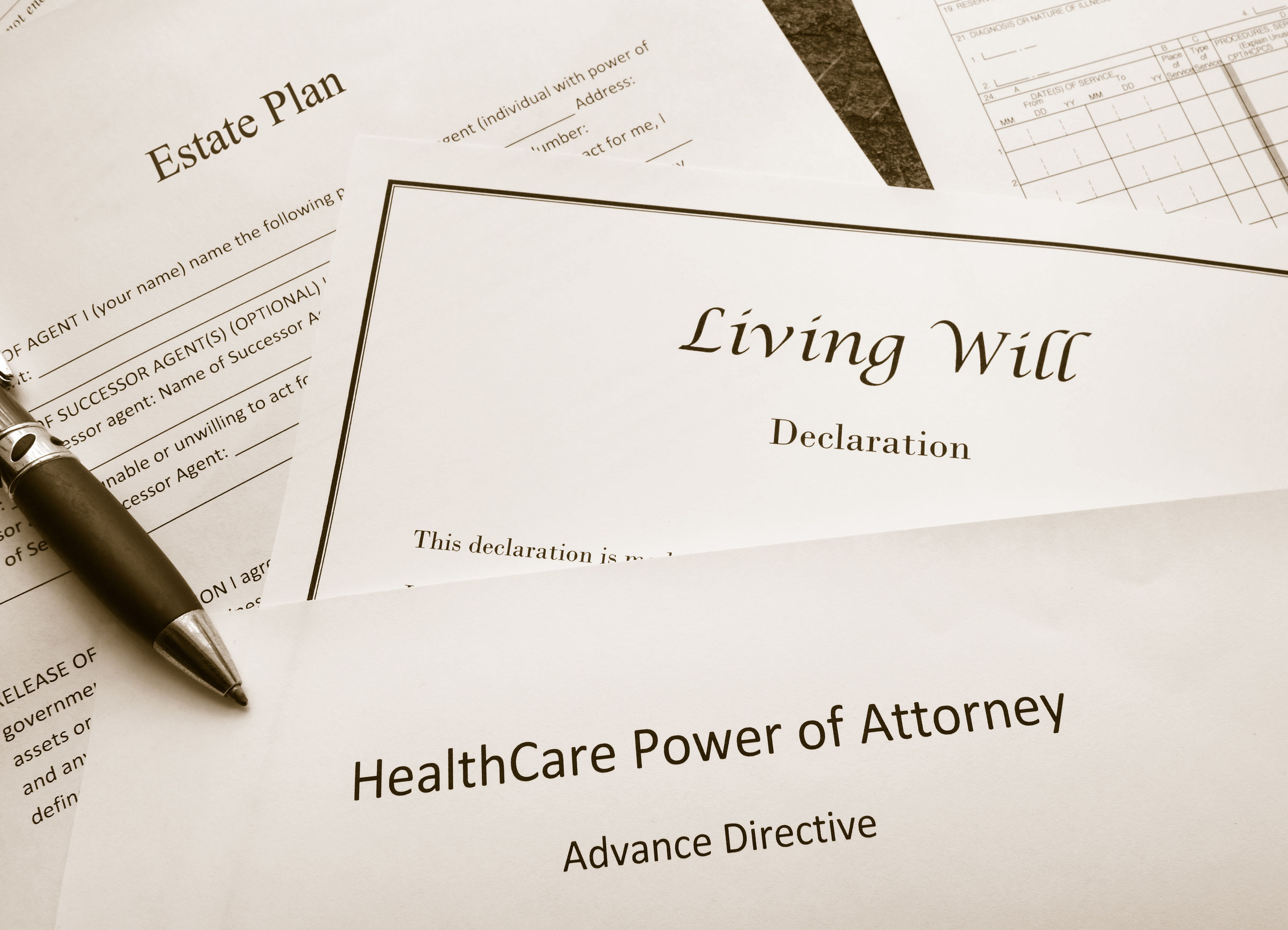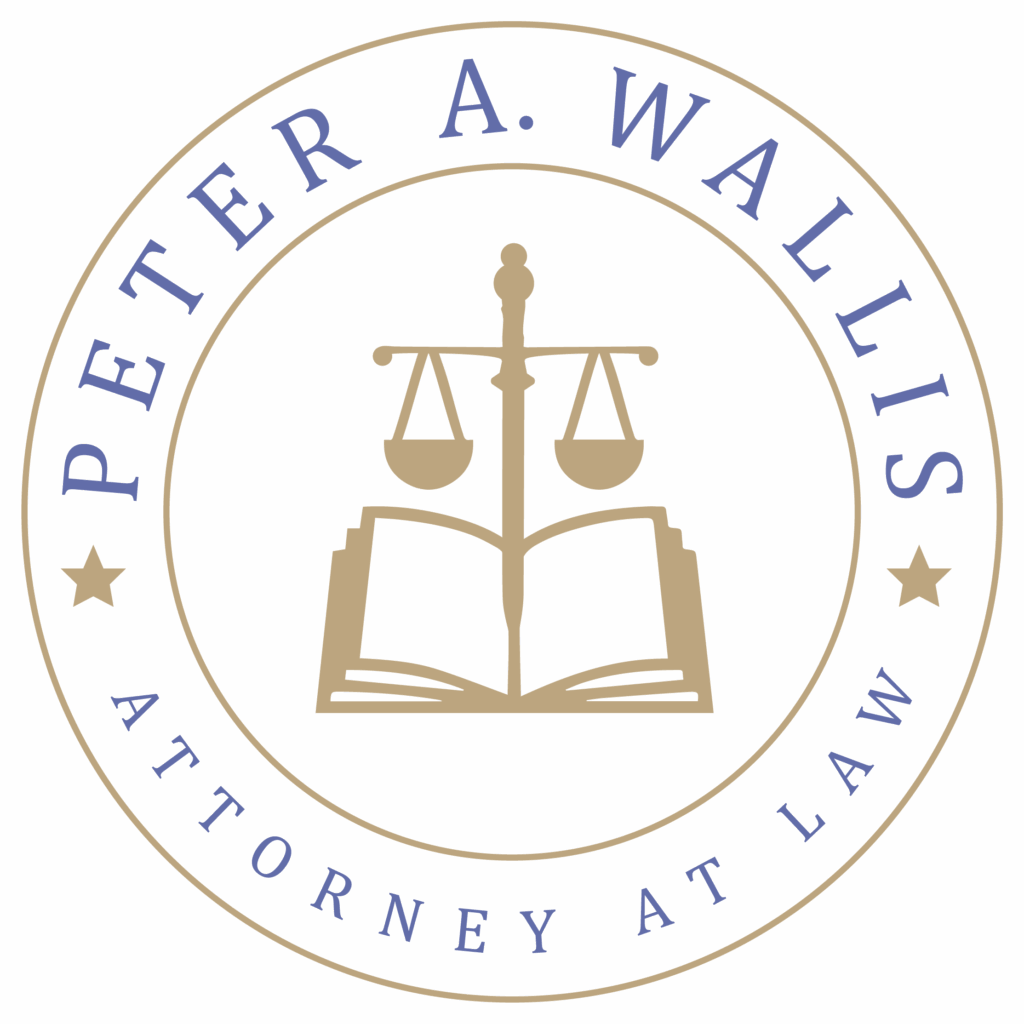ESTATE PLANNING
What is estate Planning?
Proper planning preventing preposterous poverty. A longer definition: Estate Planning is a searching review of a person’s health, family, friends, benefactors, predators, property, debts, risks, and fundamental values, to formulate a legally sound plan with proper and legally binding documents, for better management and smooth and efficient transitions of assets in the event of mental decline, disability and/or death.

What are some basic problems solved by good estate planning?
1. Who will be the guardian of your minor children if you die and there is no other competent parent?
2. Who will manage your wealth and property if you are disabled?
3. How your property will be managed if you are disabled?
4. Who will manage your healthcare if you are unable to think or communicate?
5. How you (or your family members) might keep eligible for government benefits and still have benefits of your money?
6. Who will control your business if you are disabled and how they are to run the business?
7. Who will be the person in charge of distributing your wealth when you die?
8. Who your property will go to when you die?
9. How to avoid court actions of probate when you die?
10. How to reduce or eliminate some kinds of estate taxes after you die?
11. How to better avoid will contests and family fights when you die?
12. How to dispose of your body and organs after you die?
What is the difference between a will and a trust?
Both wills and trusts can allow you to transfer wealth to people after you die but there are several key differences so most people should have both a will and trust.
Wills can allow you to appoint guardians for your minor children if you die; trusts can’t.
Wills can allow you to give general gifts of unspecified property after you die; trusts usually can’t.
Wills (generally) have to go through court actions called “probate” which take months or years and can cost thousands of dollars; trusts generally don’t have to.
Wills are probated and filed in court so they are public knowledge. Neighbors, extended family members, or professional con-men can research this public information to find out what was in the will and whom it is left to. Trusts can (generally) be privately administrated without disclosing terms to the courts and public.
Wills are governed by very strict state law. If you use the wrong language in the will, or don’t properly write or witness your will, parts or all of it can easily be invalidated. The law can be very unforgiving when people improperly draft wills.
Trusts (generally) can avoid the costs, complications, and delays of probate.
Trusts (generally) can be used help to avoid some important types of government collections.
Trusts can be used to manage and protect a trust maker’s property while he is disabled even before he dies. Wills are only effective after a person dies.
Trusts can be used to regulate the transfer of wealth over years, decades or generations. This can be useful to prevent minor children, incompetents, or imprudent recipients (also called beneficiaries) from spending all their “inheritance” too quickly. It can preserve wealth for future generations.
Trusts come in many different forms for different purposes. Trusts are not “one size fits all.”
“Asset protection trusts” are designed to help protect property from creditors. For most people, these types of trusts are too restrictive and not necessary.
What are some benefits of trusts over wills?
Trusts (generally) can avoid the costs, complications, and delays of probate.
Trusts (generally) can be used to help to avoid some types of taxes and sometimes government debt.
Trusts can be used to manage and protect a trust maker’s property while he is disabled even before he dies.
Trusts can be used to regulate the transfer of wealth over years, decades, or generations. This can be very useful to prevent minor children, incompetents, or imprudent recipients (also called beneficiaries) from spending all their “gifts” too quickly. It can preserve wealth for future generations.

What are different types of trusts?
AB trusts, spendthrift trusts, charitable remainder trusts, revocable living trusts, special needs trusts, generation skipping transfer trusts, irrevocable trusts, testamentary trusts. Some are good for some kinds of problems and some are good for others. What type of trust is right for you? Talk to a good estate planning attorney to find out. You can call Peter A. Wallis, Attorney and Counselor at Law, at 888-521-4560.
What is an Advance Healthcare Directive?
An advance Healthcare Directive is a document that names a person (your agent) to make your healthcare decisions for you in the event you are no longer able to make healthcare decisions for yourself. It also includes your instructions for your healthcare agent for how to make decisions for you. It goes into effect when you are so disabled that you cannot think clearly or communicate your wishes properly. This type of situation may happen if you are in a coma, suffering from dementia, are heavily medicated, or otherwise mentally impaired. It requires your health care agent to follow your directions regarding life-sustaining procedures if you have a terminal injury or illness. For example, you can direct if you want someone to just “pull the plug” if you are brain dead instead of keeping your body alive for months or years.
What is a durable power of attorney for finances?
A durable power of attorney for finances allows you to specify a trusted spouse, family member, or friend to legally manage your finances and act for you, in the way you designate, without a court order to do so. A durable power of attorney would continue to be in effect if you are mentally incapacitated. It is a very useful document to help prevent the need for conservatorship in the event that you become unable to manage your own finances.
How much does estate planning cost?
Estate planning costs depend on the difficulty of the estate planning situation. In my initial consultation, I need to ask about 70 questions to understand your situation, the problems, and the possible solutions to those problems. That is why I offer a free initial consultation.
A good estate plan would usually include two or three attorney consultations, and the drafting of a trust (type to be determined), certification of trust, wills, powers of attorney documents, advance healthcare directive documents, HIPAA documents, a deed or several deeds to transfer the home and other properties into the trust, transfer of ownership reports for the assessor, notarizations of documents, recording of the deeds, and recording fees.
Typically, for an individual, Peter A. Wallis may charge approximately $2,000 to $2,500 and for a couple, approximately $2,500 to $3,000 for a complete estate planning package including counseling, documents, notarization, and recording fees. However, there are many different situations that can cause the costs to be two or three times as much or more. These fees are a very small price to pay for good careful estate planning with an experienced estate planning attorney to help avoid the much more costly and frustrating problems of asset mismanagement in old age, embezzlement, probate, family legal battles, or becoming disabled or dying without an estate plan.
What is the process and time required for estate planning?
We start with a free initial consultation which typically lasts between 30 to 60 minutes or longer where I try to understand the basics of your situation and I explain to your options and the basics of estate planning.
By the end of that initial consultation, I will give you a set price of how much your recommended estate planning documents and recording fees will cost you.
After signing an agreement, you can fill out an estate planning worksheet I give you. This will give me basic information about yourself, your family, your assets, and your wishes.
I review and clarify the information you gave me on the estate planning worksheet and I may make suggestions about your options for how to handle potential problems.
I will then create drafts of the estate planning documents based on your wishes. I will then email them to you for your initial review.
After your review the estate planning documents I email to you, I will make any corrections and/ or changes that need to be made, and I will print up and bind the documents for you to sign and notarize them. This signing of documents can be in my office or with a mobile notary in your home.
After you sign and notarize the documents, most of the documents will stay with you. You may continue to review the documents in your possession, at your leisure, over the next 60 days and I make whatever corrections need to be made at no extra charge.
The final step is usually “funding the trust” where I file the deeds with the county recorder to put real property into the trust and you have your bank accounts re-named in the name of your trust if you want those accounts in the trust. (Not all types of accounts should go into a trust).
The time it takes to finish an estate plan is typically 3-4 weeks but it varies greatly based on the urgency of the situation and the cooperation of the client. I give priority to clients who are in greater danger of dying soon. I have been able to produce an estate plan in two days for a client I had on their deathbed and I have waited over a year for another client who procrastinated in getting their worksheet information to me.
Once completed, trusts don’t require much maintenance like LLC’s or corporations do but trusts should be reviewed every few years and when situations change. For instance, if you get married or divorced you certainly need to remake the trust. Also, if you discover you can’t trust people you previously trusted, you may need to amend your trust to have a new trustee. If you acquire new property such as real estate, you will need a deed to put that into the trust. If you acquire new bank accounts or stock accounts that you want to put into the trust, you need to have those accounts properly named in the name of the trustee of the trust.
